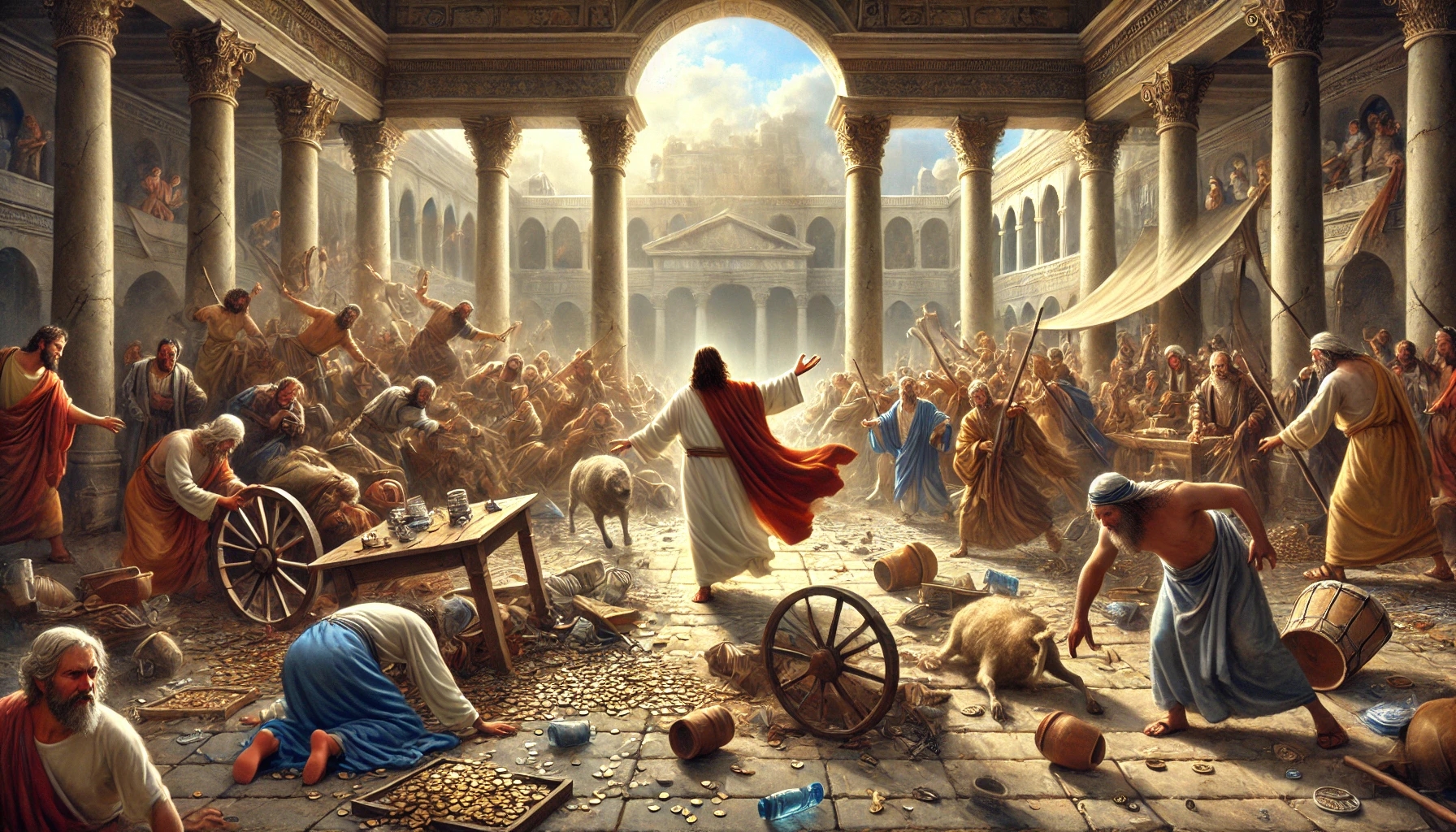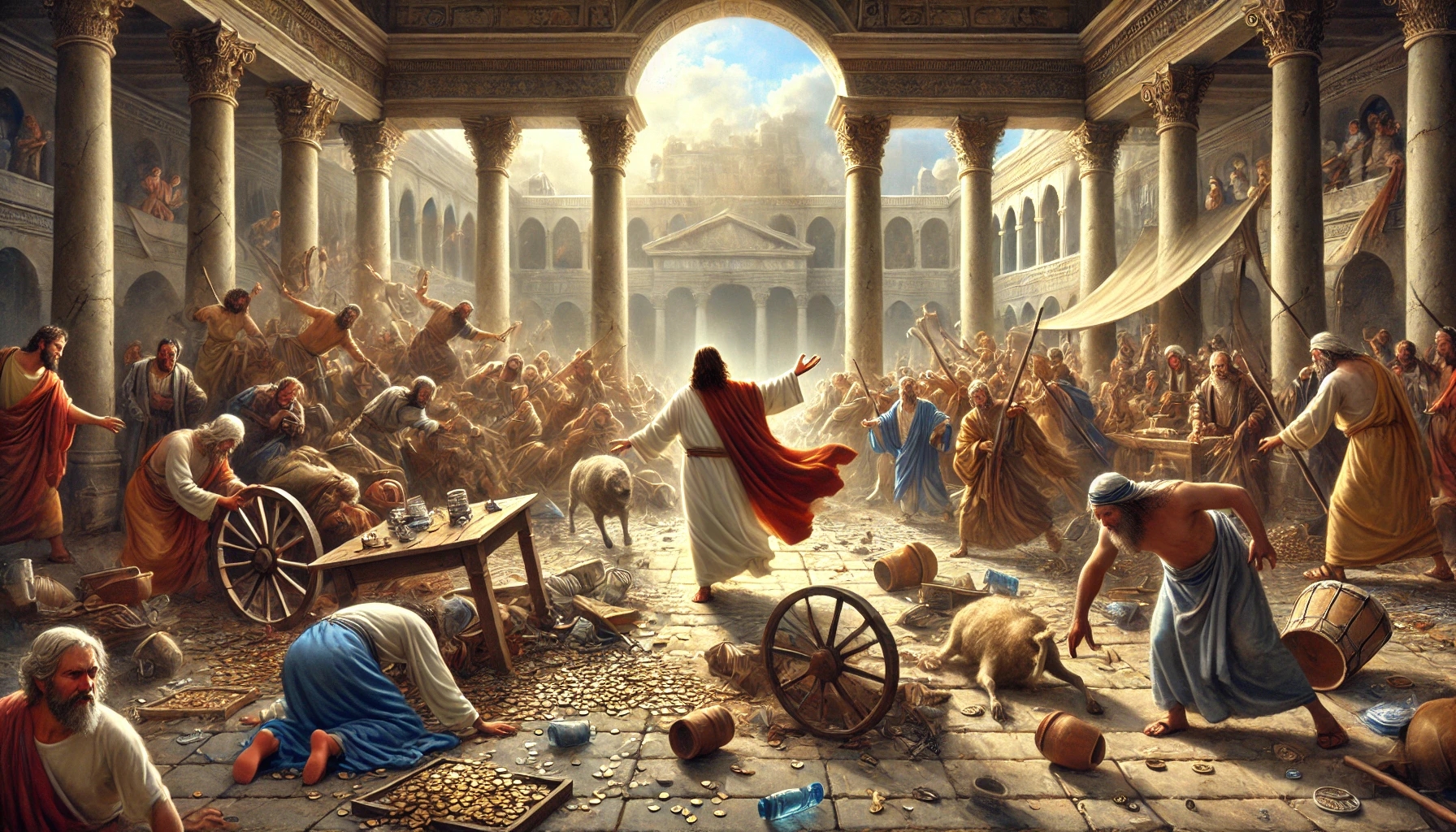

13.4 Appearing to Mary and Others
First Witnesses of the Resurrection: The Unexpected Role of Women
Read Mark 16:9–20. What do these verses add to the resurrection account?
Mark 16:9–20 supplements the resurrection narrative with important encounters of the risen Jesus with His followers, including Mary Magdalene and the disciples. Notably, the first person to see the living Jesus is Mary Magdalene—a woman. In the society of that time, women did not hold a high status as witnesses, which makes this account all the more authentic. If the story were fabricated, men would likely have been presented as the first witnesses, as their testimony held more weight.
The fact that women were the first witnesses to the resurrection not only underscores the credibility of the report but also highlights Jesus’ appreciation and equality of people, regardless of their social status. Mary Magdalene brings the good news to the disciples, but they initially do not believe her—a further indication of the profound surprise and misunderstanding that the resurrection caused.
The remaining verses describe additional appearances of Jesus, His commissioning of the disciples to spread the gospel, and His ascension into heaven. They emphasize the universal validity of the mission and the confirmation of divine power working through the disciples as they proclaimed the gospel. This ultimately breaks the silence, and the proclamation of the resurrection and Jesus’ message begins, strengthened by His direct instruction.
What happens in Mark 16:14 that makes no sense if this account were fabricated?
In Mark 16:14, we see Jesus rebuking His disciples for their unbelief and “hardness of heart” because they did not believe those who reported His resurrection, despite having heard about it. This portrayal of the disciples in a negative light makes no sense if the account were invented.
If the story were fabricated, the disciples would likely have been depicted as strong, faithful leaders who believed in Jesus’ resurrection from the start. Instead, the account shows their weaknesses—their flight, doubt, and disbelief. This honesty and self-criticism strongly support the authenticity of the Gospels. The fact that the disciples later boldly and unwaveringly proclaimed the risen Christ despite their initial doubts is powerful evidence for the truthfulness of the resurrection and their experiences.
How can we protect ourselves from falling into the spiritual trap of doubt and unbelief?
To protect ourselves from falling into the spiritual trap of doubt and unbelief, it is crucial to maintain a daily and living connection with the risen Christ. Here are some ways to achieve this:
-
Daily Prayer and Bible Study: Regular times of prayer and scripture reading help us internalize God’s truth more deeply. By listening to God’s voice and reading His promises, our faith is strengthened, and our doubts diminish. Like the disciples, who were repeatedly reminded of Jesus’ word after His resurrection, we also need constant reminders of God’s assurances.
-
Remembrance of God’s Faithfulness: It is important to remember how God has worked in our lives in the past. Reflecting on God’s faithfulness strengthens our faith and helps us remain steadfast in times of doubt. The disciples had forgotten what Jesus had previously promised them—we must consciously strive not to make the same mistake.
-
Fellowship with Other Believers: Sharing and encouraging one another among fellow believers is of great significance. Often, another person’s testimony can help renew our own faith. Fellowship provides support when we fall into doubt and gives us the opportunity to pray for and strengthen each other in faith.
-
Obedience in Faith: Doubts often arise when we distance ourselves from God and His will. However, when we remain obedient in the small, everyday things, our faith deepens. Obedience shows our dependence on God and fosters our trust in His guidance.
Why do we need a daily connection with the risen Christ?
A daily connection with the risen Christ is necessary because He is the source of our life, strength, and hope. Without this daily relationship, there is a danger of becoming estranged from God and vulnerable to doubt and unbelief. Here are some reasons:
-
Strengthening Our Faith: Every day, Jesus’ presence reminds us of His resurrection and victory over death. This living relationship gives us the strength to hold on to our faith, even when we face difficulties or doubts.
-
Guidance and Wisdom: Through daily fellowship with Christ, we receive wisdom and guidance for our decisions. He helps us adopt the right perspective and not be driven by our own fears or uncertainties.
-
Daily Renewal: Faith is a daily decision. The connection with Christ renews our hearts, gives us new hope, and the ability to live according to His will. Without this renewal, our faith risks becoming superficial.
-
Protection from Spiritual Attacks: Doubts and unbelief can come as temptations and spiritual attacks. Proximity to Christ protects us from such pitfalls because He gives us the strength and courage to resist these temptations.
In summary: A daily connection with the risen Christ is essential for growing in faith, overcoming doubts, and leading a fulfilling spiritual life. It anchors us in truth and gives us the strength to remain confident in God’s plan, even in difficult times.
The connection between the encounter of the women with the risen Jesus and our everyday life lies in the significance that this first encounter has for our own faith and testimony. That Mary Magdalene and other women were the first witnesses of the resurrection shows us that God often acts through the unexpected. In the society of that time, women did not hold a high status, yet God chose them to convey humanity’s most important message: “He is risen!”
This story encourages us that God can use us, regardless of our background, status, or weaknesses, to spread His message. Often, we may feel insignificant or unworthy of speaking about our faith—but God sees things differently. Like Mary Magdalene, we too can share the good news of the resurrection with others.
In everyday life, this means that we should not only view the resurrection as a historical event but as a living reality that shapes our lives daily. The resurrection gives us the assurance that Jesus is alive and walking with us. This truth is meant to give us not only comfort but also courage and confidence to live and share our faith, even in a world often full of doubt.
A daily connection with the risen Christ helps us trust Him in difficult times, overcome our doubts, and live with the assurance that He is with us—just as He assured the disciples and the women back then. Just as they were called to break the silence and proclaim the gospel, we are also called to boldly share our lives and faith.












